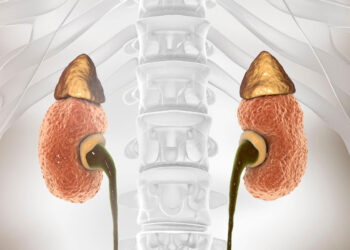 Handout
HandoutOne morning before school, Rex, aged nine, ate a hot cross bun. Minutes later, he was struggling to breathe and went into anaphylactic shock.
Rex is allergic to peas and lentils – ingredients you would not commonly expect to find in a hot cross bun. However, when Rex’s mum looked at the packaging, it turned out the glazing used on the bun contained pea protein – causing Rex’s allergic reaction.
Pea is not one of the 14 allergens required by law to be listed on food labels but earlier this week, experts said it – among others – should be.
Rex’s father, Tom, says it “feels like a lot of these things are booby-trapped”.
“We couldn’t understand why,” he says. “It wasn’t a vegan recipe. What is pea protein doing in a hot cross bun?”
After he went into anaphylactic shock, Rex was quickly given his EpiPen and taken to hospital. He made a full recovery but hot cross buns aren’t the only unassuming product he’s been tripped up by.
During June’s heatwave, Rex bought an ice cream after school from a corner shop. As he’d eaten this particular brand before, he didn’t check the packaging but, unbeknownst to him, the ice cream now contained pea protein and caused another allergic reaction.
Tom says Rex is now “terrified” of accidentally eating pea and having an allergic reaction.
He agrees with experts that the list of 14 allergens should be expanded to include pea and feels “frustrated” it is being increasingly added to foods.
‘Game of roulette’
Under current regulations, food packaging in the UK and EU already lists the most common allergens for people to be aware of, such as egg, peanuts and sesame.
They must be clearly emphasised, usually in bold, on labels while restaurants will either list allergens on menus or inform customers verbally.
Rex isn’t the only child being caught out by pea protein in products.
In 2023, Becky gave her son an ice lolly he’d eaten before with no issues. However, the now-five year-old quickly began coughing while his throat became irritated. The lolly contained pea protein – which her son, like Rex, is severely allergic too.
For Becky and her husband, expanding the allergens list to include clear warnings for peas would be “life-changing” and a “massive weight” off their minds.
“It’s getting harder and harder to say ‘well, it probably doesn’t contain pea’ because pea is in things that you would never think it would be,” she added.
“It’s like playing a game of roulette.”
 Handout
HandoutAlthough it’s becoming more common, people with a pea allergy are finding it’s not taken as seriously as other allergies.
Charlotte, 25, is allergic to all pulses – including peas, chickpeas and lentils. She would welcome expanding the allergen list as it would make people more aware of her allergies as she’s frequently told it’s “not a real allergy”.
“I think because it’s kind of like a joke that people don’t like peas, people think that I’m just being fussy,” she says.
“People just don’t consider it a real allergy or even understand what it is.”
Charlotte says this can make eating out quite hard. Two weeks ago she went out for dinner in London and had an allergic reaction but staff insisted her food wasn’t contaminated.
“I ended up apologising that I was having allergic reaction because I felt so embarrassed I was making an inconvenience for them.”
Becky also says her son has had similar experiences.
He’s allergic to egg, peanuts, nuts, sesame, chickpeas, peas and lentils but his reaction to pea is seen very differently – even though it’s as severe, if not worse than his reaction to peanuts.
 Handout
HandoutIt’s not just pea allergies that are becoming more common. Experts also suggested that allergic reaction warning labels should be added to foods containing pine nuts, buckwheat and sheep and goat’s milk.
Annabel, 20, has just completed a degree at the University of Cambridge. She’s allergic to pine nuts and believes adding them to the list of allergens could potentially be “life saving” for her.
Like Charlotte, Annabel finds communicating her allergies to restaurant staff can be very hit or miss.
“I often feel like my allergy is not taken seriously,” she says. “When I state an allergy to pine nuts, the vast majority of the time they reply ‘peanuts?'”
She says staff often tells her there’s no nuts in her food but thinks they just mean the nuts which are recognised as part of the 14 allergens.
She’s had three anaphylactic reactions, including when she was informed by restaurants that her meal didn’t contain pine nuts.
Annabel says adding it to the list would make her feel “so much more confident” when eating out.
“A lot of my family like to eat out quite a lot and I often don’t want to go, or when I’m with my friends I’m always telling everyone around me ‘this is where my EpiPens are, this is what to do if something happens’, [so] to have that safety and to not worry would be such a big difference to me.”
The Food Standards Agency said earlier it recognised there were a significant number of foods that could cause allergies or intolerances.
While Allergy UK said it was calling for full ingredient labelling on all food products while keeping an eye on worrying trends.
Source link : https://www.bbc.com/news/articles/cx2pv0z7x3eo?at_medium=RSS&at_campaign=rss
Author :
Publish date : 2025-08-24 00:37:00
Copyright for syndicated content belongs to the linked Source.












